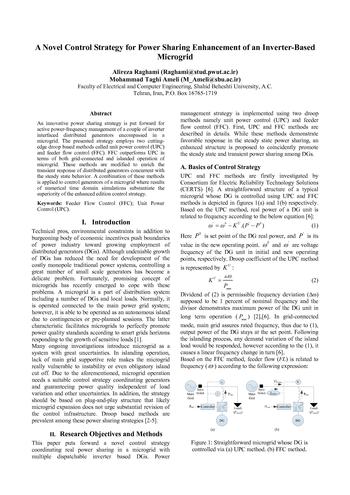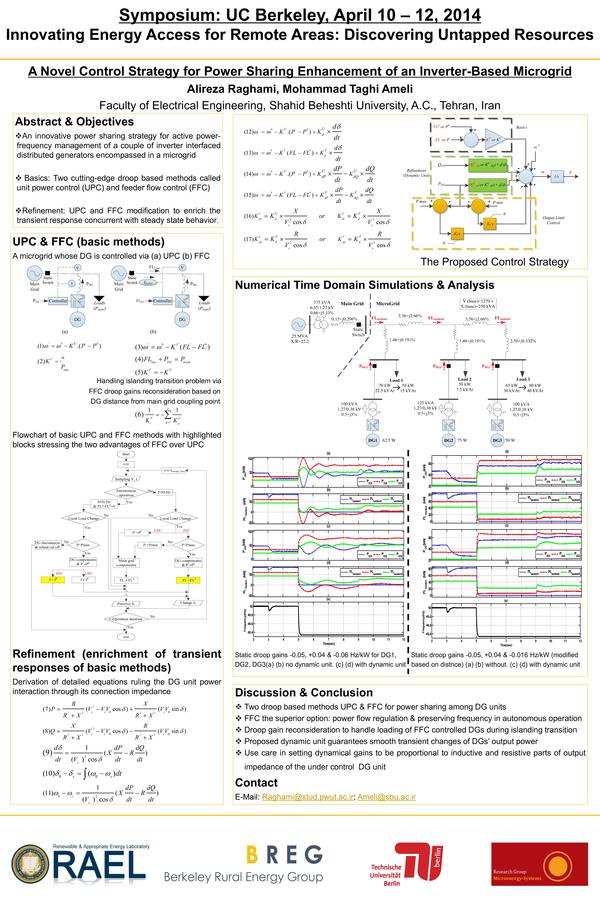A Novel Control Strategy for Power Sharing Enhancement of an Inverter-Based Microgrid
A Novel Control Strategy for Power Sharing Enhancement of an Inverter-Based Microgrid
Presenter: Alireza Raghami (Faculty of Electrical and Computer Engineering, Shahid Beheshti University, A.C. Tehran, Iran)
Overview
An innovative power sharing strategy is put forward for active power-frequency management of a couple of inverter interfaced distributed generators encompassed in a microgrid. The presented strategy employs two cutting- edge droop based methods called unit power control (UPC) and feeder flow control (FFC). FFC outperforms UPC in terms of both grid-connected and islanded operation of microgrid. These methods are modified to enrich the transient response of distributed generators concurrent with the steady state behavior. A combination of these methods is applied to control generators of a microgrid where results of numerical time domain simulations substantiate the superiority of the enhanced edition control strategy[1].
Technical pros, environmental constraints in addition to burgeoning body of economic incentives push boundaries of power industry toward growing employment of distributed generators (DGs). Although undeniable growth of DGs has reduced the need for development of the costly monopole traditional power systems, controlling a great number of small scale generators has become a delicate problem. Fortunately, promising concept of microgrids has recently emerged to cope with these problems. A microgrid is a part of distribution system including a number of DGs and local loads. Normally, it is operated connected to the main power grid system; however, it is able to be operated as an autonomous island due to contingencies or pre-planned sessions. The latter characteristic facilitates microgrids to perfectly promote power quality standards according to smart grids horizons responding to the growth of sensitive loads [2][1].
References
- ↑ 1.0 1.1 A Novel Control Strategy for Power Sharing Enhancement of an Inverter-BasedfckLRMicrogrid Alireza Raghami and Mohammad Taghi Ameli. Faculty of Electrical and Computer Engineering, Shahid Beheshti University, A.C. Tehran, Iran.
- ↑ Raghami, A., Ameli, M., & Hamzeh, M. (2013). Primary and secondary frequency control in an autonomous microgrid supported by a load-shedding strategy. Proceedings of the 4th Power Electronics, Drive Systems & Technologies Conference (pp. 282-287). Tehran, Iran: IEEE.






















